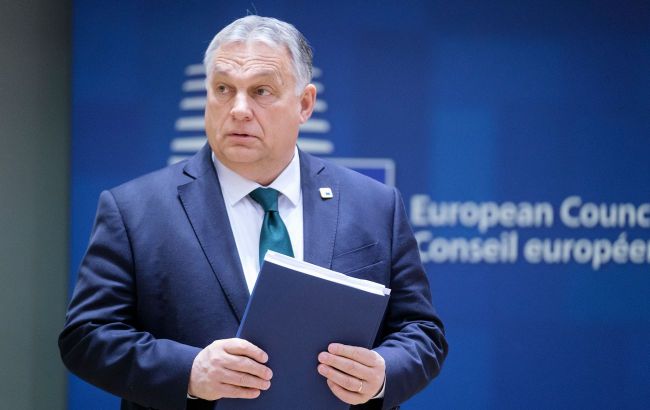Hungary may be deprived of voting rights in EU to approve aid to Ukraine - FT
 Hungarian Prime Minister Viktor Orbán (Photo: Getty Images)
Hungarian Prime Minister Viktor Orbán (Photo: Getty Images)
European Union member countries are considering depriving Hungary of its voting rights to approve a €50 billion aid package for Ukraine for the years 2024-2027, according to the Financial Times.
According to the agency, some officials in Brussels propose applying the punishment procedure under Article 7 of the Treaty on European Union 2007 for a breach of the rule of law, which could lead to the suspension of voting rights.
Any other member state can block this step, but the change in the Polish government means that Hungary no longer has a guaranteed defender. However, many countries are nervous about using what is essentially the EU's most potent weapon against a member state.
Instead, according to officials, the priority is to convince Orban, clearly explaining what they called the "full costs" of his isolation. If this fails, the other 26 EU members can individually conclude an aid agreement with Ukraine, although it will take time and offer only a short-term solution.
"Maybe Hungary can create more trouble," said a senior EU official who was present at the summit in Brussels last week. "Maybe Hungary can force us to use a few different tools. But ultimately Hungary cannot stop us providing money to Ukraine."
EU summit and aid to Ukraine
At the EU leaders' summit in Brussels on December 14, Hungarian Prime Minister Viktor Orban unexpectedly softened his stance on Ukraine's accession to the EU after German Chancellor Olaf Scholz persuaded him to leave the room for coffee. Orban essentially refrained from opposing any steps at the beginning of the negotiations.
However, a few hours later, he spoiled the celebration moment for Kyiv and pleased the Kremlin by vetoing a four-year, €50 billion financial aid package. According to the Financial Times, even by Orban's standards, this sharp move shocked his partners. His refusal to compromise on a key issue of EU security worried even those who had opposed him for many years.
Daniel Hegedus, a senior research fellow at the German analytical center of the Marshall Fund, said, "It was a low point for the EU and a new high point of escalation."
Orban's position in the EU
Throughout his 13-year tenure, Orban used antagonistic relations with the EU to mobilize voters and achieve financial concessions from Brussels. His current claim against Brussels is the suspension of €20 billion in funding due to issues related to the rule of law and fundamental rights.
"We all see what it takes to trigger him, and that's money," said a high-ranking EU diplomat.
A long-time Eurosceptic and self-proclaimed "illiberal democrat," Orban played a challenging game at several previous summits, promising to block the €1.8 trillion EU budget and the pandemic recovery fund in 2020, or the €18 billion aid package to Ukraine last year, only to later back down.
As FT writes, on the eve of last week's summit, EU leaders desperately tried to understand what Orban actually wanted. Was he following orders from Russian President Vladimir Putin, or was he trying to force Brussels to unfreeze blocked funds?
Orban and his allies repeatedly stated that his opposition to aid for Ukraine was not related to EU funding for Hungary. But on the eve of the summit's conclusion, he finally named his price: the payment of the remaining €20 billion.
"This is a great opportunity for Hungary to make it clear that it should get what it deserves," said the prime minister.
Orban also noted that he has 75 more opportunities to block the process of Ukraine's accession, as each stage requires unanimous approval from EU members. The situation is further complicated by Hungary's assumption of a six-month bloc presidency in July, another potential source of leverage.
The EU approved the allocation of €10 billion to Hungary last week. However, any further disbursement of funds will likely face stiff resistance. The remaining €20 billion, which belongs to Hungary, is held under a separate procedure that gives Brussels the necessary leverage.


